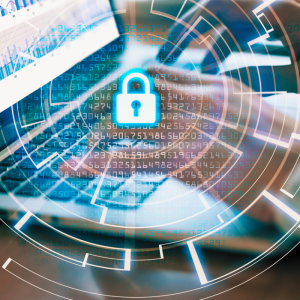
Whether you’re a small business or a multinational corporation, your success hinges on the confidentiality, integrity and availability of critical data. Every transaction, customer interaction and strategic decision relies on this precious asset.
As your dependence on data grows, so do the risks. Cyberthreats and data breaches aren’t just potential disruptions when you possess valuable and sensitive data; they’re existential threats that can undermine your business continuity.
Key considerations for data security
Fortunately, ensuring data security is achievable with the right strategies and the right partners. Here are some steps you should consider taking:
Data backups:
Regularly back up your data to secure off-site locations. Cloud storage services by reliable providers are a good choice. Consider using external hard drives or network-attached storage (NAS) devices. These backups ensure that even if your primary systems are compromised, you can swiftly recover essential information.
Encryption:
Encryption is your digital armor. It protects sensitive data during transmission (when it’s being sent) and at rest (when it’s stored). Implement strong encryption algorithms like Advanced Encryption Standard (AES) to render data unreadable to unauthorized individuals. Remember that encryption scrambles data, making it inaccessible to anyone without the decryption key.
Access control:
Implement strict access controls to limit who can view or modify sensitive information. Role-based access control (RBAC) can effectively assign permissions based on job functions.
Multi-factor authentication (MFA) adds an extra layer of security. It requires additional verification steps (such as one-time codes sent to mobile devices) to ensure that only authorized personnel can access critical data.
Remote work security:
As scattered work environments become more commonplace, secure remote access is vital. Here’s how you can implement it:
Virtual private networks (VPNs) and Zero Trust Networks: VPNs create a secure connection between remote devices and your internal network. However, oftentimes this blind connection into your network isn’t the best solution. This is where zero trust networks come in. They are a step up from VPNs and deal with the access control portion by only allowing authorized users to access the data they need.
Secure remote desktop protocols: If employees access company systems remotely, ensure they use secure protocols like RDP (Remote Desktop Protocol) over encrypted channels.
Strong password policies: Enforce robust password policies. Encourage passphrase-based authentication for added strength.
Incident response plan:
Develop a detailed incident response plan. Consider the following:
Roles and responsibilities: Clearly define who does what during a data breach or cyberattack.
Communication protocols: Establish channels to notify stakeholders, including customers, employees and regulatory bodies.
Recovery procedures: Outline steps to recover affected systems and data promptly.
Continuous monitoring:
Implement continuous monitoring of your IT systems. Tools like Security Information and Event Management (SIEM) track and analyze security-related data. Proactive threat detection allows for swift responses to potential breaches.
Employee training:
Regularly train employees on data security best practices, such as:
Phishing awareness: Teach them to recognize phishing attempts, such as fraudulent emails or messages that trick users into revealing sensitive information.
Understanding of social engineering: Educate employees about social engineering tactics used by cybercriminals.
Device security: Remind them to secure their devices (laptops, smartphones, tablets) with strong passwords and regular updates.
Partner for success
If all of this sounds unfamiliar or you’re unsure how to begin securing your data, you’re not alone. Protecting your business from cyber threats can feel complex, but you don’t have to navigate it alone.
Our expert team is here to simplify the process. We’ll help you:
- Assess your current data security measures
- Identify vulnerabilities and areas for improvement
- Develop a tailored strategy to safeguard your critical information
Let’s take the guesswork out of data security. Contact BizCom Global today to start building a safer, more resilient business.
Give us a call today! 919-855-8399



